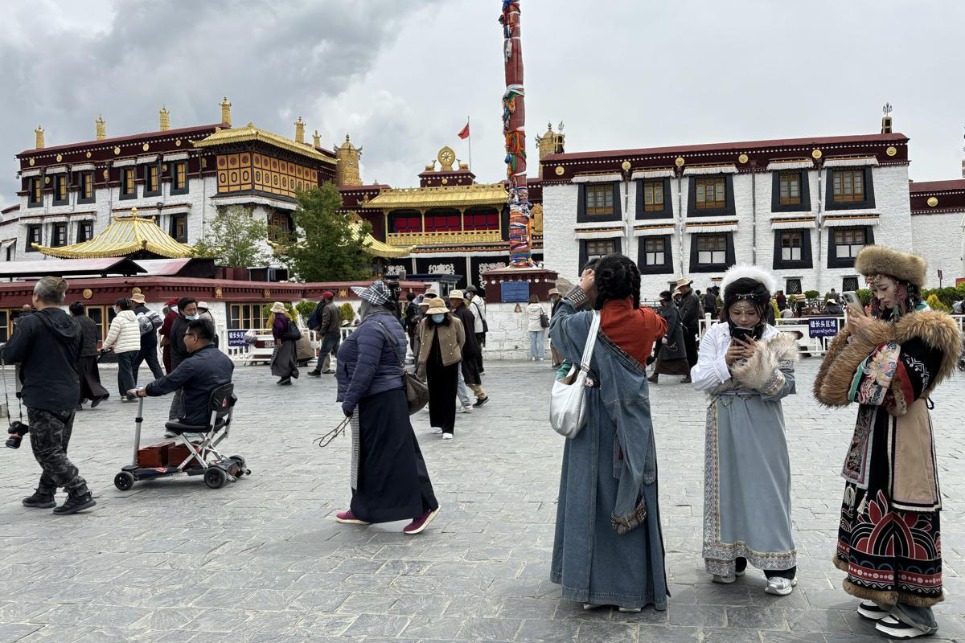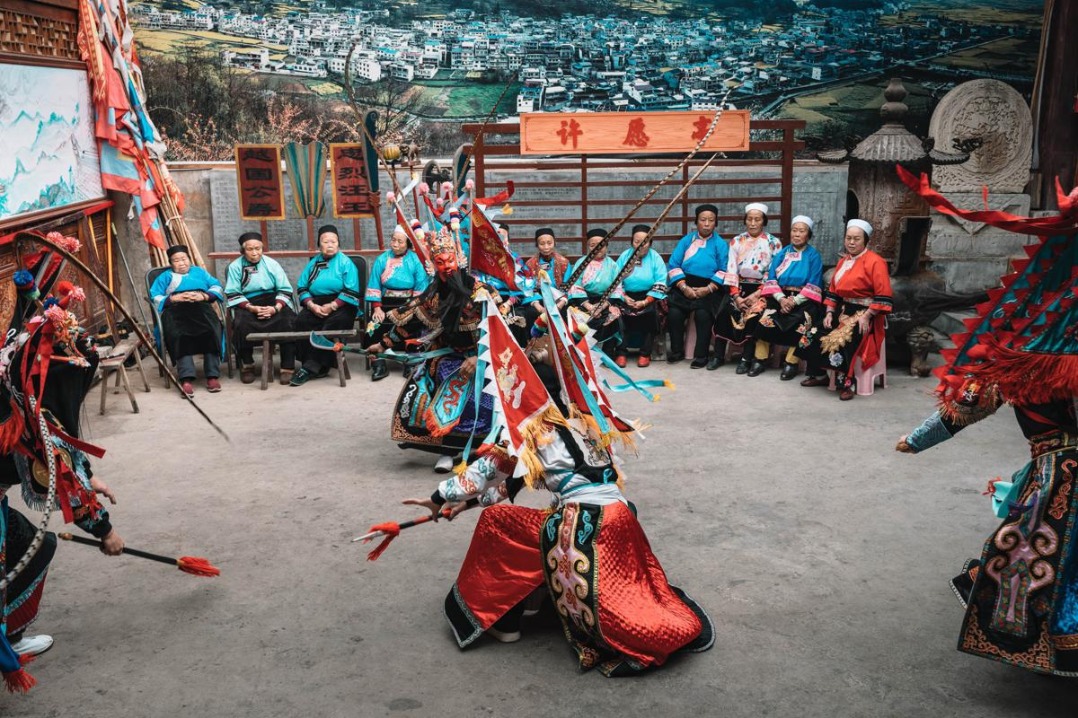Finding the inner peace


In recent years, however, he has to do the family routine at least one week ahead of Tomb Sweeping Day.
As a photographer, he joins the annual ceremony paying homage to Huangdi, or the Yellow Emperor, who is regarded as one of the common ancestors for all Chinese. It's held by the local government on Tomb Sweeping Day at the Mausoleum of Huangdi in Huangling county, Shaanxi province.
Chinese people often call themselves the descendants of the Yan and Huang emperors. It's believed that the Yellow Emperor defeated other tribal leaders, the Yan Emperor and Chiyou, unifying all tribes in ancient China around 4,700 years ago.
In Huangling county, many Chinese from home and abroad join the ceremony to show their respect, which includes traditional singing, dancing and orations.
After the ceremony, they're allowed to take the sacrifices as a symbol of good fortune, including mianhua, a local steamed bun made of wheat flour in various shapes like animals.
"The Yellow Emperor is the spiritual icon of Chinese people, and such ceremonies can bind us together. Also, young Chinese are involved as volunteers and performers, and they can learn more about the tradition," Wang says.
He says that unlike the past, the ceremony has been attracting more Chinese than before. Meanwhile, the Mausoleum of Huangdi has also improved its infrastructure to cater to the growing demands of tourists.
"Tomb Sweeping Festival is more like an identification of the Chinese culture. With China holding more public memorial services for martyrs in recent years, it has also become an important way to instill patriotism," says Guo Wenbin, a well-known author.
Guo has written a popular short story about Tomb Sweeping Day, which is based on his childhood memories in his hometown, a small county in Ningxia province.
"Chinese believe that humans are an integral part of nature. As Tomb Sweeping Day approaches in the spring, the spirituality of humans has a better corresponding relationship with that of the universe," he says.
He adds that in the traditional Chinese values, the best way to honor one's ancestors is to bring glory to them, such as getting ahead in one's career.
According to him, when young Chinese get back to their roots to join tomb-sweeping activities of the family, they get a sense of belonging and security, and it will help ease their life anxieties.
"If you compare traditional culture to a textbook, traditional festivals are like the classrooms. Without a classroom, there will be no more textbooks.
"It's just like cooking rice. While the ancient people used primitive stoves, we use electric rice cookers. No matter how the method changes, humans need food to survive. So do festivals, which are necessary for our social and psychological demands."
He admits that traditional festivals have changed with times and been influenced by commercialization.
"But it's important that people are aware of the significance of these festivals. Some entrepreneurs are also advocates of traditional festivals. As more Chinese are seeking spiritual life for a sense of belonging, these festivals will continue be a vital part of our life."
- 'Book of Songs' from Chinese imperial tomb proves oldest complete copy ever found
- Exhibition highlighting the 'Two Airlines Incident' opens in Tianjin
- Average life expectancy in Beijing rises to 83.93 years
- Energy drink overdose sends delivery worker to hospital
- GBA and Hainan deepening cooperation to boost innovation and sustainable growth
- Beijing mulls including the costs of embryo freezing and preservation in medical insurance





































